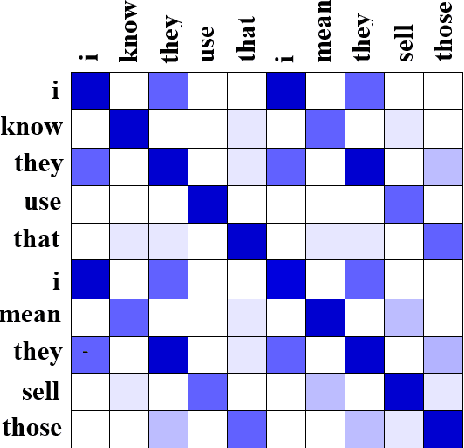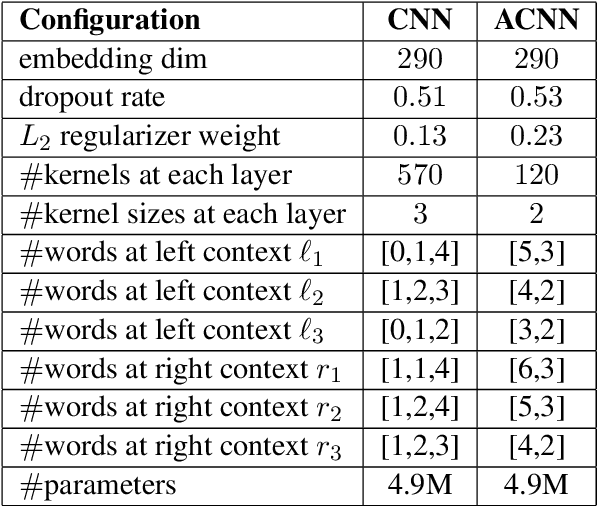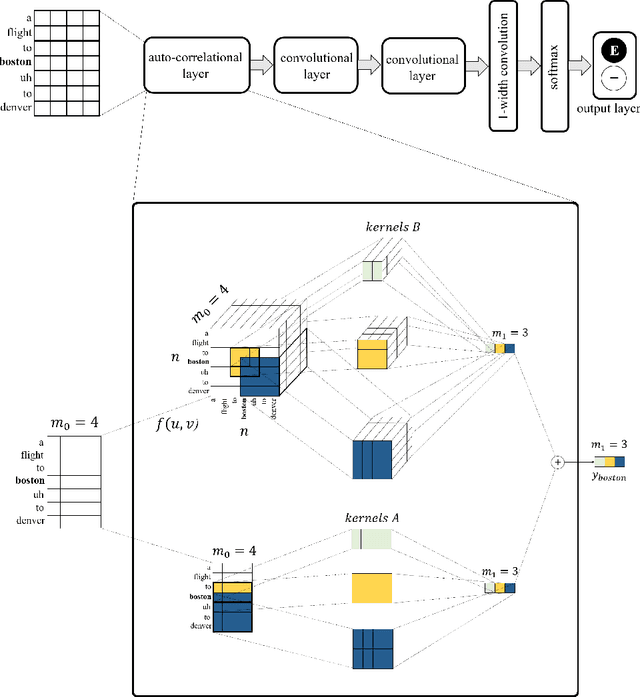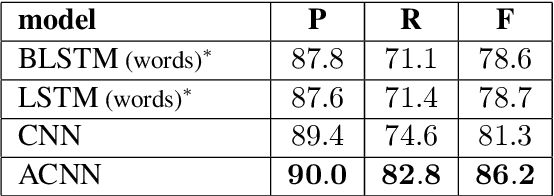Disfluency Detection using Auto-Correlational Neural Networks
Paper and Code
Oct 28, 2018



In recent years, the natural language processing community has moved away from task-specific feature engineering, i.e., researchers discovering ad-hoc feature representations for various tasks, in favor of general-purpose methods that learn the input representation by themselves. However, state-of-the-art approaches to disfluency detection in spontaneous speech transcripts currently still depend on an array of hand-crafted features, and other representations derived from the output of pre-existing systems such as language models or dependency parsers. As an alternative, this paper proposes a simple yet effective model for automatic disfluency detection, called an auto-correlational neural network (ACNN). The model uses a convolutional neural network (CNN) and augments it with a new auto-correlation operator at the lowest layer that can capture the kinds of "rough copy" dependencies that are characteristic of repair disfluencies in speech. In experiments, the ACNN model outperforms the baseline CNN on a disfluency detection task with a 5% increase in f-score, which is close to the previous best result on this task.
 Add to Chrome
Add to Chrome Add to Firefox
Add to Firefox Add to Edge
Add to Edge